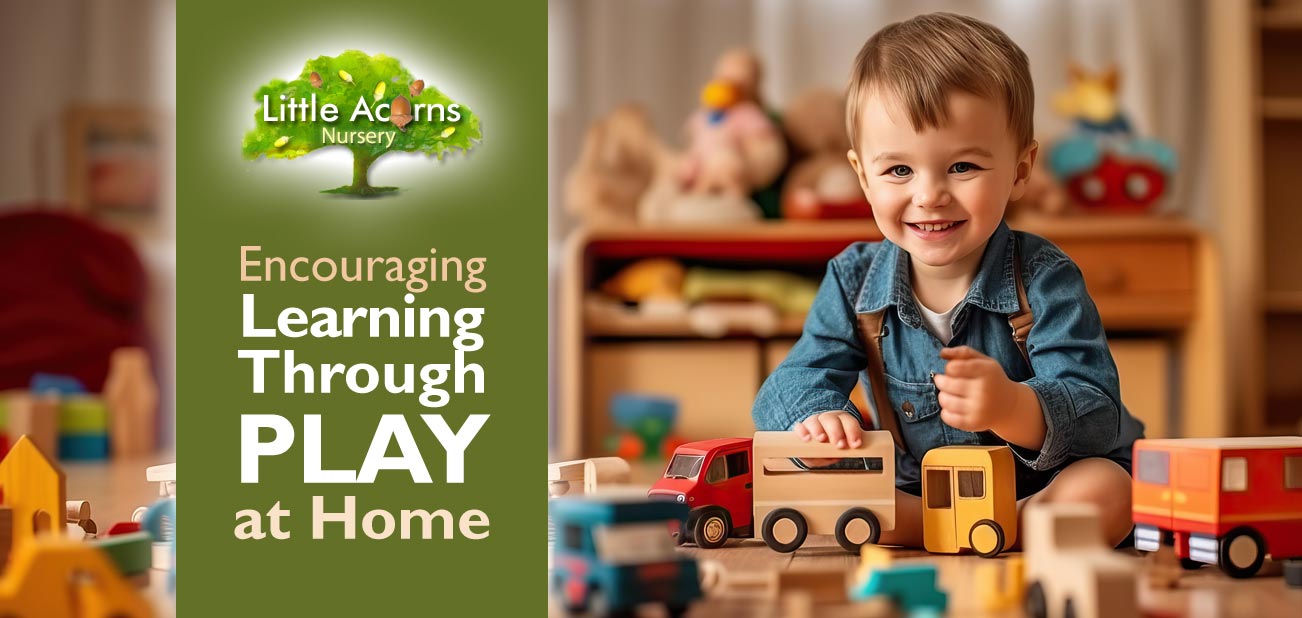
 As we discussed in our recent post The Power of Learning Through Play in Early Childhood, play helps babies and children to improve cognitive skills, social skills, motor skills and emotional growth. It feeds the imagination, boosts creativity and fosters a love of learning. Language skills benefit, problem-solving abilities are enhanced, and children naturally pick up maths concepts and even elements of science through play. With that in mind, today’s post follows up with the topic of Encouraging Learning Through Play at Home.
As we discussed in our recent post The Power of Learning Through Play in Early Childhood, play helps babies and children to improve cognitive skills, social skills, motor skills and emotional growth. It feeds the imagination, boosts creativity and fosters a love of learning. Language skills benefit, problem-solving abilities are enhanced, and children naturally pick up maths concepts and even elements of science through play. With that in mind, today’s post follows up with the topic of Encouraging Learning Through Play at Home.
How to Encourage Learning Through Play at Home
Play-based learning doesn’t stop when children leave childcare nurseries; it continues at home, where parents and caregivers play a crucial role in fostering an environment that supports exploration, curiosity, and growth through play. Through the suggestions outlined below, parents can help children more optimally benefit from everything that learning through play provides — while at home.
Create a Playful Space
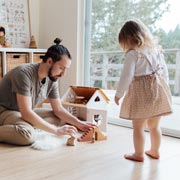 Designate an area in your home for play. It doesn’t need to be elaborate — even a corner with a few age-appropriate toys, books, and art supplies may be sufficient. Ensure, of course, that the space is safe and free from hazards before your child embarks on their play activities.
Designate an area in your home for play. It doesn’t need to be elaborate — even a corner with a few age-appropriate toys, books, and art supplies may be sufficient. Ensure, of course, that the space is safe and free from hazards before your child embarks on their play activities.
Be a Playful Partner
Getting involved in your child’s play is hugely beneficial to the quality and impact of children’s play. Play together, ask questions, foster feedback that’s two-way, and encourage imaginative storytelling during play sessions. Your active participation not only deepens the bonding experience but also profoundly enhances their learning.
Limit Screen Time
Screens are now a pervasive part of modern life, and they can be both a blessing and a challenge. TV, educational apps, interactive websites, and streaming services can provide valuable learning experiences, but too much screen time can have adverse effects on children’s development. At the very least, excessive screen time can potentially impede the development of essential social and motor skills. Therefore try to limit the time your child spends on screens, including TV, tablets, and smartphones. Instead, encourage physical, interactive, and imaginative ‘real life’ play — and your child will reap great rewards. It’s a fine balance between accommodating the digital age and ensuring children take part in real-world activities that support educational growth and development.
Embrace Outdoor Play
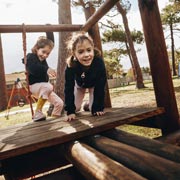 Outdoor play also offers a wealth of learning opportunities. It promotes physical health, stimulates the senses, and allows for unstructured exploration, which all contribute to holistic development. Take your child to the park, explore nature, or simply play with them in the back garden if you have one. Outdoor activities will also foster an appreciation for the natural world. Indeed, we wrote a whole post about the many benefits of outdoor play and another about the huge benefits of nature to children. Take a look at these important topics by following the bold links.
Outdoor play also offers a wealth of learning opportunities. It promotes physical health, stimulates the senses, and allows for unstructured exploration, which all contribute to holistic development. Take your child to the park, explore nature, or simply play with them in the back garden if you have one. Outdoor activities will also foster an appreciation for the natural world. Indeed, we wrote a whole post about the many benefits of outdoor play and another about the huge benefits of nature to children. Take a look at these important topics by following the bold links.
Encourage Pretend Play
Pretend play, such as role-playing with costumes or setting up a pretend kitchen or suchlike, fosters creativity and imagination — and is huge fun for your child. Encourage your child to take on different roles and scenarios during such playtime and watch their creativity and imagination soar!
Read and Explore Together
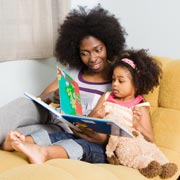 Reading is a wonderful way to support learning through play. Choose age-appropriate books, of course, and be sure to engage in interactive storytelling. Ask and encourage questions about the story, encourage your child to predict what might happen next, and ask them what they might do if it were them in the story. Books and reading teach children so many things and, like pretend play above, truly encourage their imaginations and get their creative juices flowing. Learn more about how you can supercharge your child’s education through reading here.
Reading is a wonderful way to support learning through play. Choose age-appropriate books, of course, and be sure to engage in interactive storytelling. Ask and encourage questions about the story, encourage your child to predict what might happen next, and ask them what they might do if it were them in the story. Books and reading teach children so many things and, like pretend play above, truly encourage their imaginations and get their creative juices flowing. Learn more about how you can supercharge your child’s education through reading here.
Let Them Lead
Children learn at their own pace, so be patient and, on the whole, allow them to take the lead during play. Avoid over-structuring playtime; instead, let it flow naturally, following your child’s interests and cues. Doing so will ensure they remain engaged in the activity. Do, of course, sometimes inject new, perhaps creative ideas into their play, though. As adults, we can steer children subtly in their play when there’s an idea or concept that they may not be familiar with and may otherwise have missed out on. Simple examples could include introducing the concept of using different voices for different characters in a role-playing game and showing them a different way to build a structure in a building block or construction-based game.
Celebrate Achievements
Be sure to acknowledge and celebrate your child’s achievements during play. Whether it’s completing a challenging task, creating a masterpiece, or achieving something new, positive reinforcement will make play more fulfilling and boost children’s self-esteem. It’ll also, of course, make the activity more joyful and fun for the child — and that’s a sure-fire way to motivate them to play and learn even more.
Encourage Social Play
 Arrange play dates with other children or involve siblings in play activities at home. Social play helps children learn essential social skills like cooperation, sharing, and conflict resolution. It’s also a great way to make new friendships, learn from each other, and become a closer member of friendship circles.
Arrange play dates with other children or involve siblings in play activities at home. Social play helps children learn essential social skills like cooperation, sharing, and conflict resolution. It’s also a great way to make new friendships, learn from each other, and become a closer member of friendship circles.
Age-Appropriate Toys
When playing involves toys and props, ensure your child has access to those that encourage open-ended play and creativity. Blocks, arts and crafts materials, and imaginative play sets like dolls or action figures are excellent examples as they allow children to lead the direction that their play session follows. With such toys, their imaginations can run riot and they can get truly creative. Rotate the choice of toys and introduce new ones to keep playtime fresh and engaging over time.
An Outstanding Childcare Nursery in Clayton-le-Woods, Chorley


Just like at Little Acorns Nursery, your home can be a vibrant hub for play-based learning. A nurturing environment, the right resources and materials, and actively engaging with children during play, will empower them to explore, learn, and grow. By embracing the power of play at home and in settings like Little Acorns, we are paving the way to a brighter future where young minds flourish, curiosity thrives, and discovery is both fun and educational.
Little Acorns is an outstanding nursery in Clayton-le-Woods, near Chorley. Indeed, we are officially an Outstanding Provider according to Ofsted and that’s backed up by our prestigious national nursery award. We also support Government-funded childcare schemes for eligible families, making childcare more affordable for Central Lancashire families. If you want the very best for your baby, toddler or preschooler, register them for a place or bring them on a guided tour and we’ll be delighted to show you around and answer any questions. Get in touch:
Little Acorns Nursery is ideally suited for families seeking an outstanding childcare service in Clayton-le-Woods, Chorley. It may also suit those living nearby in Clayton Brook, Clayton Green, Thorpe Green, Pippin Street, Buckshaw Village, Whittle-le-Woods, Farington, Bamber Bridge, Lostock Hall, Euxton, Leyland or Penwortham.

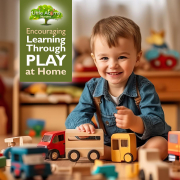
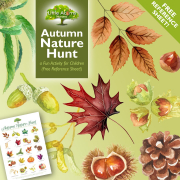
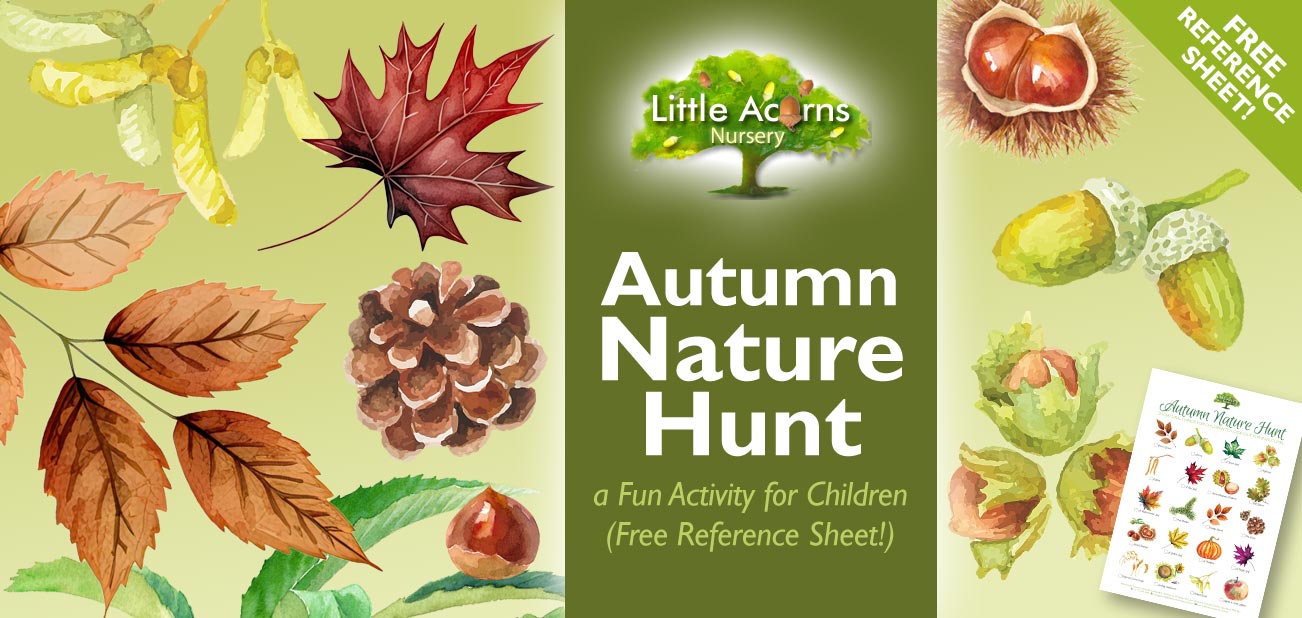
 By mid-November, autumn is in full swing and leaves are turning a myriad of different colours. Scenes of green, yellow, red and golden trees can be breathtakingly beautiful and the air is often crystal clear at this time of year — that’s great for photos! The autumn season also brings with it a treasure trove of fascinating natural things that children can discover if they take the time to look. Indeed, an autumn nature hunt is the perfect excuse for little ones to spend some time outdoors, where they will also
By mid-November, autumn is in full swing and leaves are turning a myriad of different colours. Scenes of green, yellow, red and golden trees can be breathtakingly beautiful and the air is often crystal clear at this time of year — that’s great for photos! The autumn season also brings with it a treasure trove of fascinating natural things that children can discover if they take the time to look. Indeed, an autumn nature hunt is the perfect excuse for little ones to spend some time outdoors, where they will also 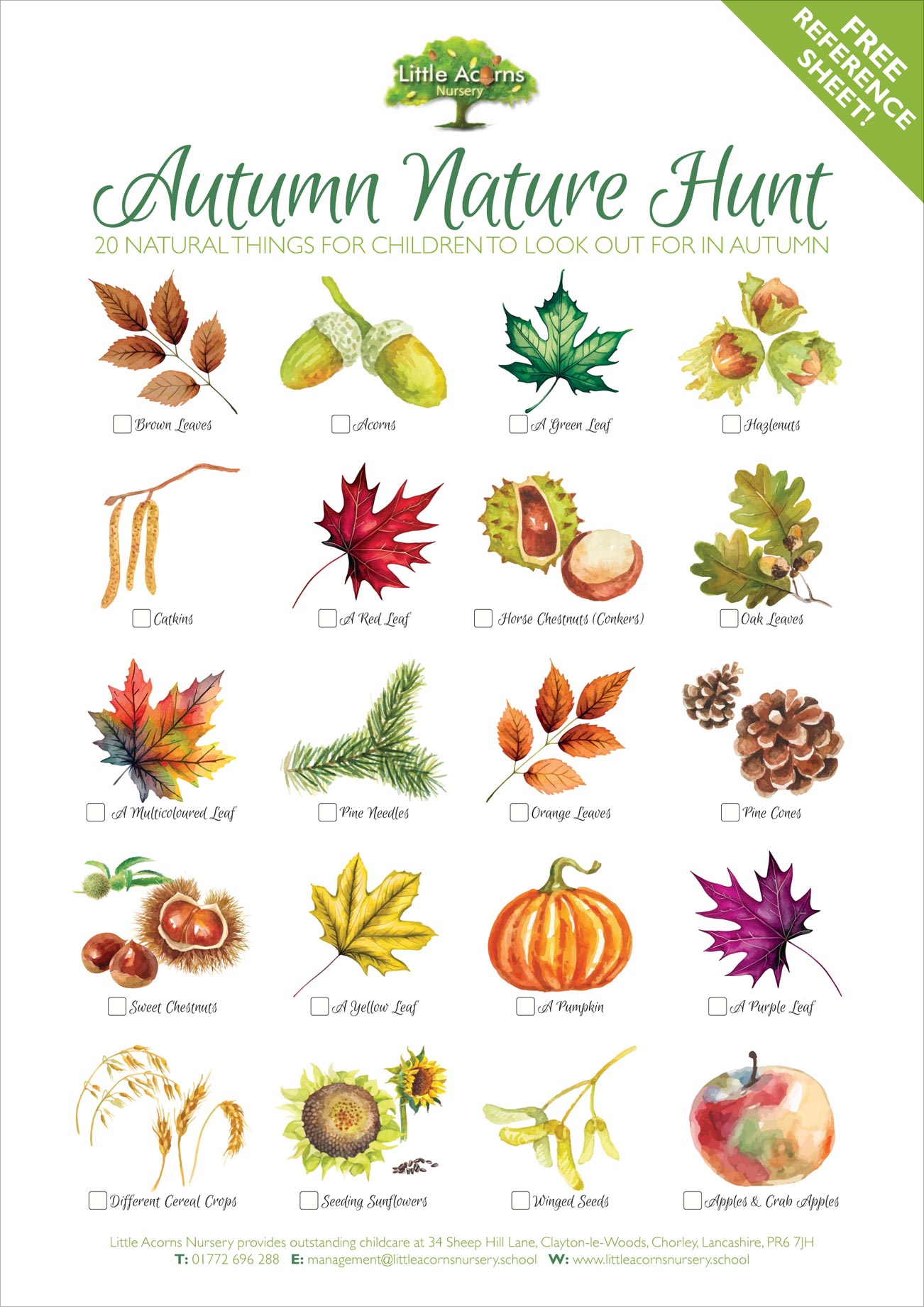
 Ensure children, particularly the very young, receive appropriate adult supervision at all times. Although fascinating and fun, the outdoors holds many hazards for the unwary. Therefore, children will need to be closely monitored by a responsible adult in order to safeguard their well-being.
Ensure children, particularly the very young, receive appropriate adult supervision at all times. Although fascinating and fun, the outdoors holds many hazards for the unwary. Therefore, children will need to be closely monitored by a responsible adult in order to safeguard their well-being.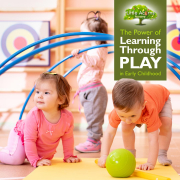
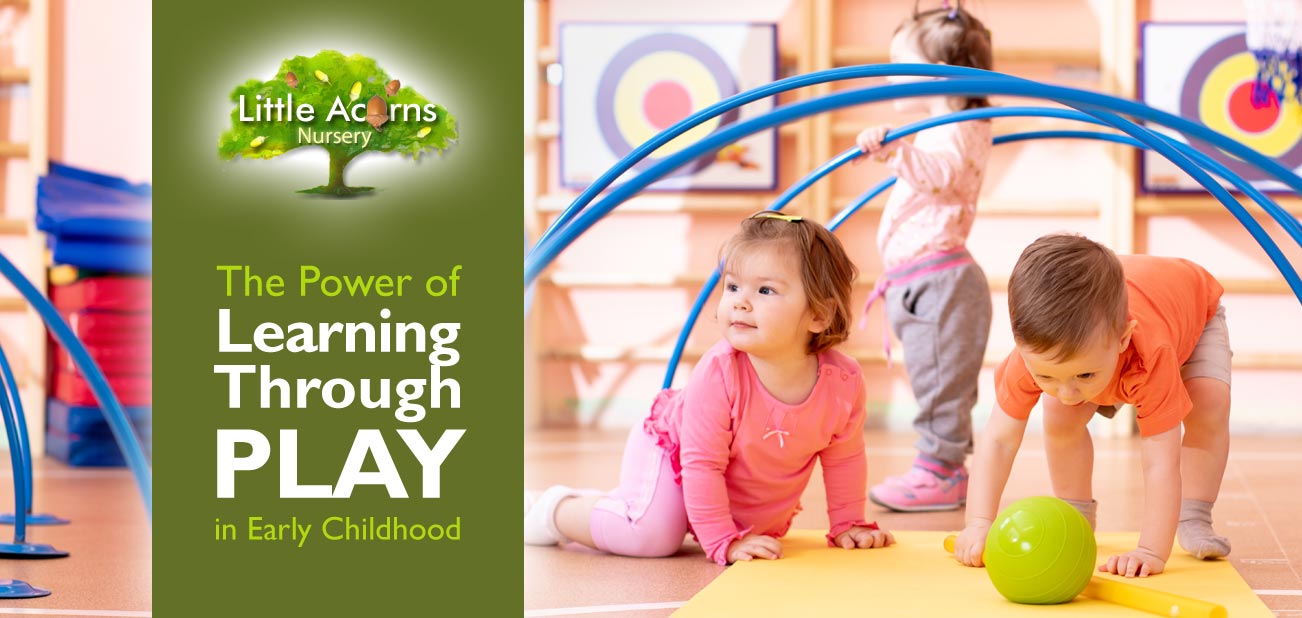
 In the world of child development and early education, there is a simple yet profound truth: children learn best when they are learning through play. Play is the universal language of childhood and, indeed, it transcends both borders and cultures. Whether it’s building sand castles on a sunny beach or arranging blocks on the floor at home, play is the gateway through which children explore, discover, and grow.
In the world of child development and early education, there is a simple yet profound truth: children learn best when they are learning through play. Play is the universal language of childhood and, indeed, it transcends both borders and cultures. Whether it’s building sand castles on a sunny beach or arranging blocks on the floor at home, play is the gateway through which children explore, discover, and grow.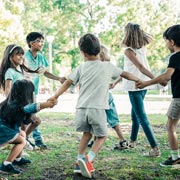 As adults, we often associate learning with classrooms, textbooks, and structured lessons. However, for children, the process of learning is a dynamic and ever-evolving adventure, with play being their very best companion during the journey.
As adults, we often associate learning with classrooms, textbooks, and structured lessons. However, for children, the process of learning is a dynamic and ever-evolving adventure, with play being their very best companion during the journey. Do babies benefit from play? Absolutely. Play is the first way through which infants start understanding their world. They use their senses to explore toys, grasp objects, and make sense of the environment around them. Sensory play, such as touching different textures or listening to soothing sounds, stimulates their developing senses and lays the groundwork for future learning.
Do babies benefit from play? Absolutely. Play is the first way through which infants start understanding their world. They use their senses to explore toys, grasp objects, and make sense of the environment around them. Sensory play, such as touching different textures or listening to soothing sounds, stimulates their developing senses and lays the groundwork for future learning. During the run-up to the age of 5, play is integral to children’s development. During this phase, children are like little sponges, soaking up information from their surroundings. Play allows them to experiment, make connections, and refine their cognitive and many other skills. Skills enhanced through play include:
During the run-up to the age of 5, play is integral to children’s development. During this phase, children are like little sponges, soaking up information from their surroundings. Play allows them to experiment, make connections, and refine their cognitive and many other skills. Skills enhanced through play include: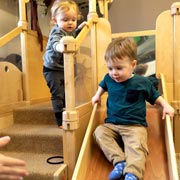 Creating playful environments — we understand the importance of a conducive environment for learning through play. With that in mind, we provide carefully designed play spaces that are rich in stimulating materials and resources. These spaces allow children to engage in various types of play, from imaginative to sensory, in a safe and supportive setting.
Creating playful environments — we understand the importance of a conducive environment for learning through play. With that in mind, we provide carefully designed play spaces that are rich in stimulating materials and resources. These spaces allow children to engage in various types of play, from imaginative to sensory, in a safe and supportive setting.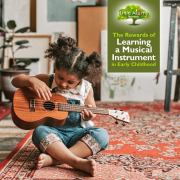

 While listening to music has a unique way of resonating with the human spirit, actually creating it on a musical instrument elevates that connection to entirely new levels. What’s more, learning to play an instrument leads to a whole host of multifaceted benefits. Whether tinkling piano keys, strumming guitar strings, or playing a wind instrument, children who learn to play a musical instrument will soon discover a whole world of opportunities and advantages that extend far beyond the realm of melody and harmony. With that in mind, today’s article explores the myriad of sometimes surprising benefits that learning to play music will bring to children, even at a very young age. Take a look below and discover how musicianship could benefit your child, extend their skills and potentially enrich their life profoundly.
While listening to music has a unique way of resonating with the human spirit, actually creating it on a musical instrument elevates that connection to entirely new levels. What’s more, learning to play an instrument leads to a whole host of multifaceted benefits. Whether tinkling piano keys, strumming guitar strings, or playing a wind instrument, children who learn to play a musical instrument will soon discover a whole world of opportunities and advantages that extend far beyond the realm of melody and harmony. With that in mind, today’s article explores the myriad of sometimes surprising benefits that learning to play music will bring to children, even at a very young age. Take a look below and discover how musicianship could benefit your child, extend their skills and potentially enrich their life profoundly.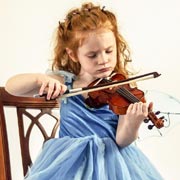 The influence of music on brain development is nothing short of remarkable. Learning to play an instrument engages various parts of the brain simultaneously and is like a 360-degree workout for the mind! As such, its cognitive benefits are profound. Children who take up musical instruments therefore tend to excel in memory, problem-solving, and mathematical skills. Indeed, studies have shown that musical training can lead to improved academic performance, enhancing children’s abilities, particularly in subjects like mathematics and science. So, when your child learns to play a violin, piano, guitar or even a simple recorder, they’re not just making music; they’re also fine-tuning their cognitive abilities.
The influence of music on brain development is nothing short of remarkable. Learning to play an instrument engages various parts of the brain simultaneously and is like a 360-degree workout for the mind! As such, its cognitive benefits are profound. Children who take up musical instruments therefore tend to excel in memory, problem-solving, and mathematical skills. Indeed, studies have shown that musical training can lead to improved academic performance, enhancing children’s abilities, particularly in subjects like mathematics and science. So, when your child learns to play a violin, piano, guitar or even a simple recorder, they’re not just making music; they’re also fine-tuning their cognitive abilities. Learning an instrument represents a real journey of creativity and imagination. Children explore melodies, experiment with harmonies, and may often progress to compose their own tunes. This creative process nurtures their imagination and encourages them to think in new and alternative ways. Making music really is a powerful tool for unlocking children’s artistic potential.
Learning an instrument represents a real journey of creativity and imagination. Children explore melodies, experiment with harmonies, and may often progress to compose their own tunes. This creative process nurtures their imagination and encourages them to think in new and alternative ways. Making music really is a powerful tool for unlocking children’s artistic potential.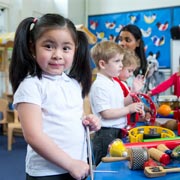 Music is often a collaborative endeavour and that, in itself, will bring additional benefits to children. As well as simply being enjoyable, group music lessons and ensemble playing will teach children valuable social and teamwork skills. Through music-making, they will learn to listen, cooperate, and communicate effectively with others at appropriate times — and even to make more friends. Such skills go well beyond the world of music and are fundamental in importance and positive impact.
Music is often a collaborative endeavour and that, in itself, will bring additional benefits to children. As well as simply being enjoyable, group music lessons and ensemble playing will teach children valuable social and teamwork skills. Through music-making, they will learn to listen, cooperate, and communicate effectively with others at appropriate times — and even to make more friends. Such skills go well beyond the world of music and are fundamental in importance and positive impact.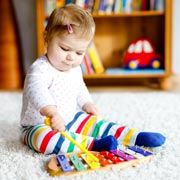 For infants and toddlers, musical exploration can start with simple activities like singing lullabies, clapping to a rhythm, or playing with simple musical or percussive toys. These activities introduce them to the world of sound and rhythm in a playful and engaging way.
For infants and toddlers, musical exploration can start with simple activities like singing lullabies, clapping to a rhythm, or playing with simple musical or percussive toys. These activities introduce them to the world of sound and rhythm in a playful and engaging way.